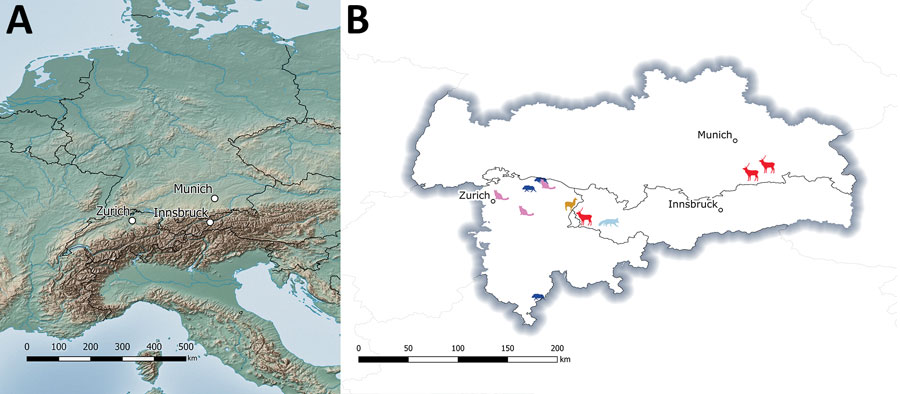Volume 27, Number 8—August 2021
Synopsis
Mycobacterium microti Infections in Free-Ranging Red Deer (Cervus elaphus)
Figure 5

Figure 5. Geographic distribution of tuberculosis cases caused by Mycobacterium microti in different animal species over 8 years from study of tuberculosis caused by M. microti in red deer, Austria and Germany. Central Europe (left) and the region bordering Germany, Austria, and Switzerland (right) are shown. Animals are shaped and colored: red deer, red; cats, pink; wild boar, dark blue; alpaca, orange; and red fox, light blue.
Page created: May 12, 2021
Page updated: July 18, 2021
Page reviewed: July 18, 2021
The conclusions, findings, and opinions expressed by authors contributing to this journal do not necessarily reflect the official position of the U.S. Department of Health and Human Services, the Public Health Service, the Centers for Disease Control and Prevention, or the authors' affiliated institutions. Use of trade names is for identification only and does not imply endorsement by any of the groups named above.